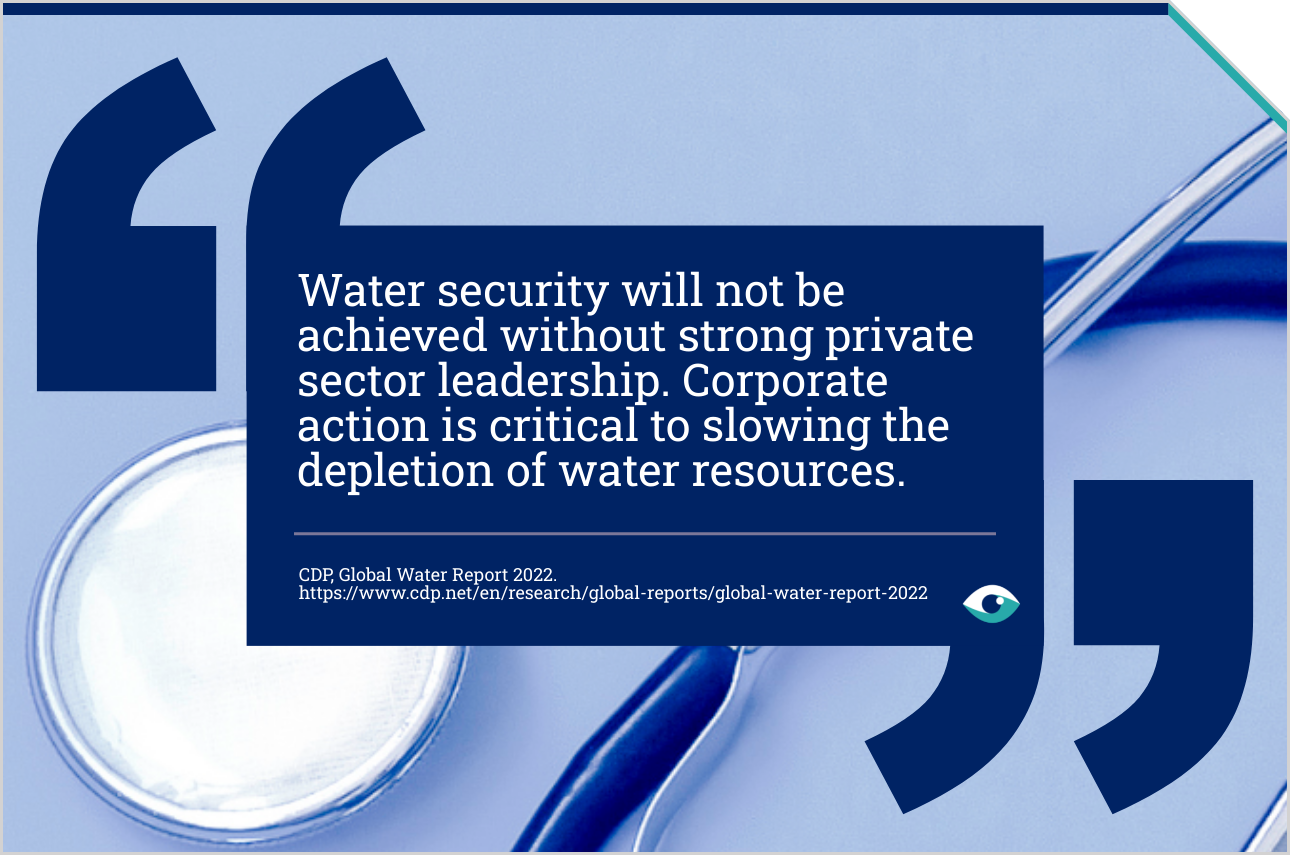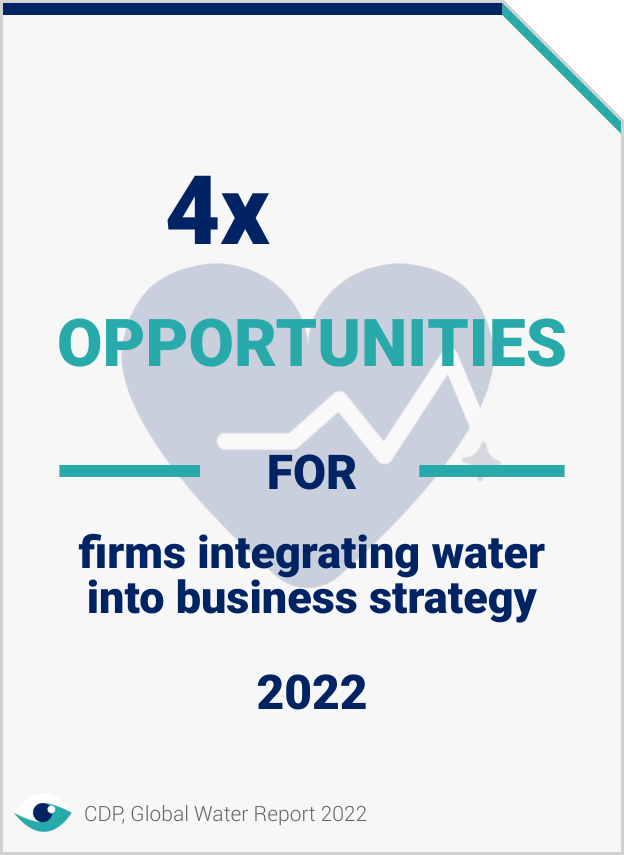So far in 2024, significant water shortages have been reported in in major pharmaceutical manufacturing hubs in India and China. The reports have underscored the risk of water scarcity driven by climate change, which could significantly affect the financial stability and prospects of companies in this industry. Water scarcity in the health sector is critical, as it jeopardises supply chain stability and increases operational costs, potentially impacting overall resilience and profitability. Addressing water security is vital for the health sector to ensure long-term financial stability, highlighting the necessity for proactive measures.

Water risks in health: strategic responses and collaboration
Combatting water scarcity and soil degradation in the health sector by leveraging stakeholder collaborations and advanced technologies
Nature & climate risks
Health (all industries)
Publication date: 01 Jul 2024
By Eye For Business
AT A GLANCE
Water scarcity is a significant risk in the health sector, with implications for financial stability and operational costs.
This risk is crucial to manage as it threatens supply chain stability and overall sector resilience.
Addressing water security through strategic collaborations and innovative solutions is essential for competitiveness.
Water risk management
In the pharmaceuticals industry specifically, Johnson & Johnson has developed specific mitigation plans to address flood and extreme weather risks. Pfizer ensures supply chain resilience by maintaining dual supply sources and inventory buffers, in consideration water risks. In addition to operational practices, a key metric for a pharmaceutical company's water management is total water withdrawal from all sources, in line with Disclosure 303-3 of the GRI standard 303 for Water and Effluents.
Water infrastructure
Among medical equipment and supplies companies, Medtronic plc has incorporated water risk into its business continuity planning. GE HealthCare Technologies is enhancing water efficiency by implementing water recycling and rainwater harvesting practices. These efforts help mitigate the impacts of water scarcity and can enhance overall operational efficiency. Other entities are applying risk modelling tools to strengthen their supply chains against future disruptions.

Stakeholder engagement
Leading entities in the heathcare services industry are pursuing collaboration with local communities and stakeholders to improve water security. Aspen Pharmacare in South Africa works with local governments and communities to implement water management, while Tata Medical and Diagnostics in India has initiated water conservation projects with regional partners. Such collaborations not only improve water management but also foster community relations and strengthen local economies.

Integrated water management
According to the CDP Global Water Report 2022, integrating water management into business strategies has been shown to identify four times more opportunities for companies. Collaborative actions by health entities across pharmaceuticals, equipment and healthcare services show the importance of an awareness of water risk and investing in efficient technologies. Integrating water management into overall business strategy is essential for long-term sustainability and competitiveness.
FURTHER READING
- Impact of water on health (WHO)
- Managing water risks in health (CDP Global Water Report)
- Health at a Glance: Asia/Pacific 2020 (OECD)
